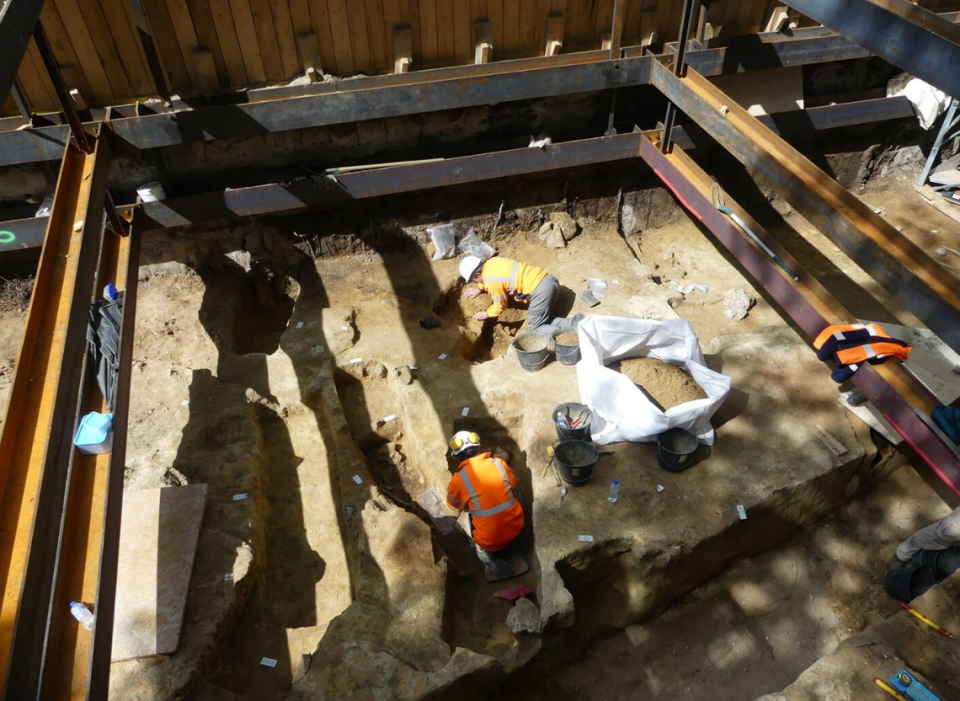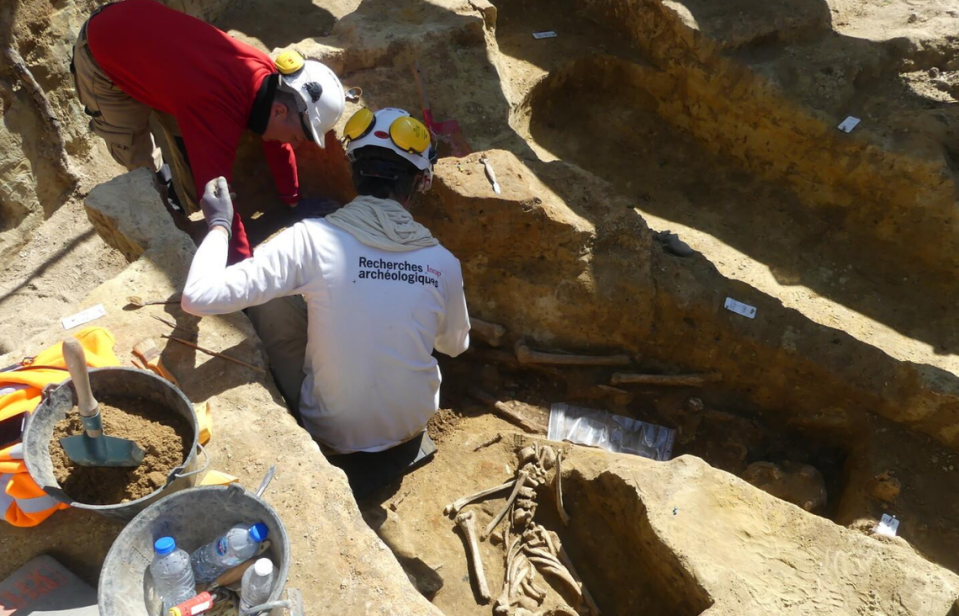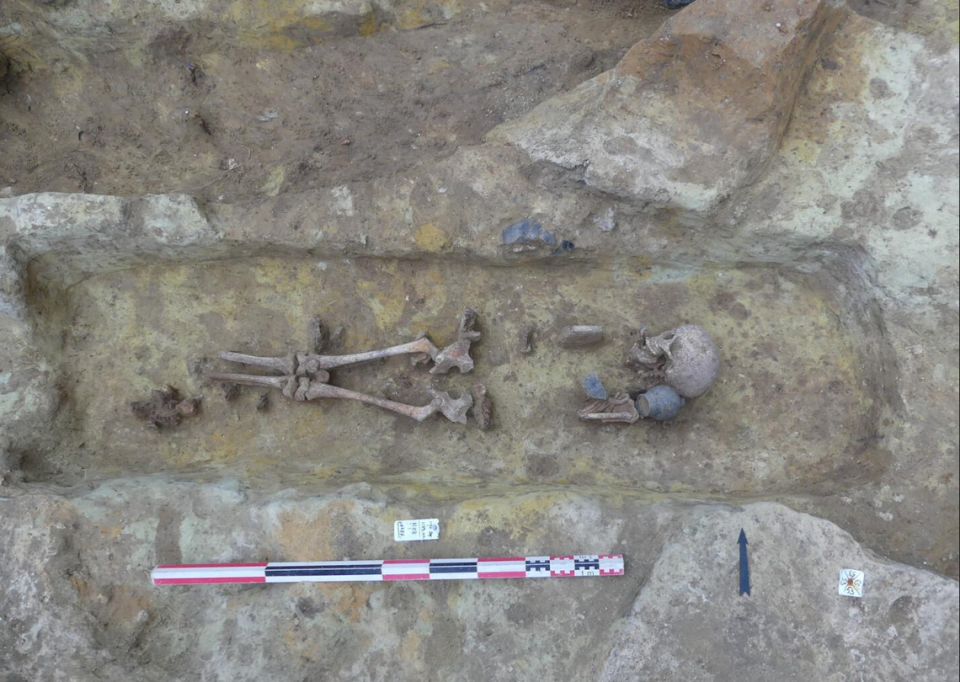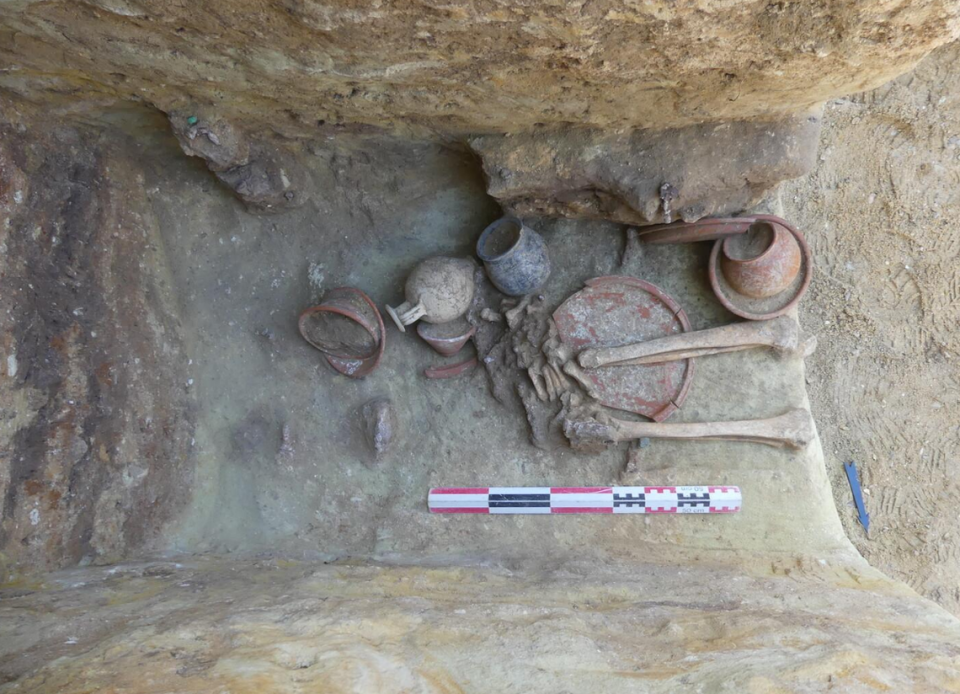50 ancient graves discovered below bustling train station in Paris, officials say
An ancient gravesite was recently unearthed in the heart of Paris, providing a glimpse into the lives of people from nearly 2,000 years ago.
Fifty tombs were discovered during an archaeological dig next to the Port-Royal train station, according to an April 19 press release from France’s National Institute for Preventive Archaeological Research (INRAP).
The tombs are believed to be a previously unknown part of the Saint Jacques necropolis, a 2,000-year-old burial ground used by the residents of Lutetia, a settlement that preceded Paris.

The site appears to have been used regularly for about 200 years before being abandoned in the 4th century A.D., officials said.
The graves are packed closely next to one another, occasionally overlapping and displaying little organization, a common characteristic seen in ancient burial grounds.
The remains of the deceased individuals, mostly adult men and women, were found alongside a number of objects, including nails, indicating they had been buried in coffins that had since decomposed.


Various household items such as ceramic dishes, cups, jewelry and pieces of shoes were also found.
Additionally, several objects were unearthed that shed light on religious practices at the time.

A gold coin found in one of the graves likely would have been inserted into the mouth of the deceased individual, officials said. This ritual was enacted as a form of payment to Charon, a mythological figure believed to transport the dead to the underworld.
Archaeologists also unearthed a pig skeleton, which likely would have been killed as a sacrifice to the gods, according to France24.
The town of Lutetia, a Gallic and Roman settlement, first appeared during the rule of Caesar Augustus around 27 B.C., according to a museum in Paris. It became a commercial hub as trade was facilitated via the Seine River.
The town’s inhabitants were known as the Parisii, according to France24. Much of their history remains a mystery, but archaeologists hope that the newfound graves can provide further insight into their way of life.
Google Translate was used to translate an INRAP press release.
6,000-year-old settlement — full of tools and granite structures — found in France
Piece of skull found in Louisiana lake in 1985 turns out to be thousands of years old
Most loved places in Africa? These top 5 tourist destinations surprise and delight

